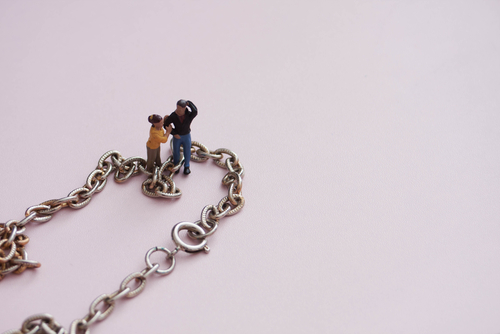Codependency is a harmful pattern of behavior that can have a significant impact on one’s emotional and mental well-being. It involves a deep reliance on others for validation and frequently leads to a diminished sense of self. Fixing codependency and overcoming its effects is crucial for personal growth and healthier relationships. Codependency undermines individuality, boundaries, and self-esteem, leading to a cycle of emotional distress and dysfunction.
Recognizing it is the first step toward healing, as it allows individuals to understand the harmful patterns and seek support. Through self-awareness, expert help, and the cultivation of healthy relationship dynamics, codependency can be addressed and overcome, leading to greater emotional autonomy and a more fulfilling life.
Is It Hard To Break Codependency?
Breaking codependency can be challenging, as it often involves unraveling deeply ingrained patterns and beliefs that have developed over time. Naturally, not everybody will experience the same level of difficulty or move through the healing process equally fast. Some of the factors that contribute to the challenges of breaking codependency usually include:
- Emotional attachment. Codependency is often rooted in strong emotional attachments and fears of abandonment. Facing these fears and other underlying emotions can be an uncomfortable process, but also a necessary step forward.
- Resistance to change. Change can be intimidating, especially when it involves restructuring long-standing relationship dynamics. Fear of the unknown and resistance to breaking familiar patterns can make it difficult to initiate and sustain change.
- Loss of identity. Codependent individuals frequently become so enmeshed in their partner’s needs and desires that they lose touch with their own identity. Rediscovering and asserting one’s individuality can seem scary and challenging, yet it’s essential for breaking codependency.
- Reliance on external validation. Since codependent individuals seek external validation to feel a sense of self-worth, shifting towards self-validation and building inner strength can be a gradual and ongoing process.
- Emotional dependency. Breaking free from the cycle of emotional dependency can be emotionally draining. Learning to rely on oneself for emotional support and developing healthy coping mechanisms takes time and practice.
Despite these challenges, breaking codependency is possible with persistence, commitment, and the right type of support. Building a support network of understanding friends or joining support groups and workshops can provide valuable encouragement and validation. The progress might be gradual, and setbacks are not uncommon, but with perseverance and self-compassion, breaking codependency is certainly achievable.

Is Codependency Permanent?
Although it might feel like it for some people, particularly those that grew up in families with codependent parents or caretakers, codependency is not a permanent state they can’t get out of. While it might take significant effort and time to overcome it, it’s certainly possible to break free from codependent patterns and develop healthier relationship dynamics. This process begins by acknowledging and recognizing the presence of codependency in oneself or in a relationship with others. Awareness is key in initiating change.
If you’re now wondering how to fix codependency, the truth is that It’s often hard to make those first steps alone, so asking for a helping hand from someone on the outside, preferably a professional, could make a world of difference for many people. Of course, each individual needs to feel and show commitment and a willingness to grow before they can engage in meaningful self-reflection and seek expert help.
The right type of expert guidance can provide valuable tools and strategies to address codependency, explore underlying emotional issues, and develop healthier coping mechanisms. Overcoming codependency is a process that generally requires ongoing effort and self-awareness. While the effects of codependency can be long-lasting, with dedication and support, most people can achieve healthier and more fulfilling relationships with themselves and others.
Is It Toxic To Be Codependent?
Codependency in romantic relationships can be highly toxic, exerting a detrimental influence on the involved individuals. As it often stems from an underlying feeling of insecurity and fear of abandonment, one or both partners can become overly reliant on the other for emotional validation, self-worth, and a sense of identity. This excessive dependence can create an unhealthy dynamic characterized by enabling, control, and manipulation.
In a codependent relationship, personal boundaries often become blurred or non-existent, resulting in enmeshment where one’s needs and desires take a backseat to the needs of the other. This can create an unhealthy power imbalance, with one partner assuming the role of the caregiver, rescuer, or “fixer,” while the other might become overly dependent or start feeling helpless. Both partners can find themselves trapped in a cycle of seeking external validation and approval, often sacrificing their own well-being in the process.
Furthermore, codependency can foster an environment where destructive behaviors are enabled rather than addressed. Issues like addiction, emotional instability, irresponsibility, or even serious mental health issues could not only persist but also escalate due to the codependent partner’s fear of confrontation or abandonment. This further perpetuates a cycle of dysfunction as the relationship becomes increasingly unhealthy and damaging for both partners.
Recognizing the signs and the toxic nature of codependency is crucial for initiating positive change. By acknowledging the negative impact it has on emotional well-being and personal growth, one or both partners can begin addressing the issues and take the first steps on their journey to recovery and healthier relationship dynamics.

How Can I Fix My Codependency?
The question of how to stop being codependent in relationships is about fostering independence, interdependence, and a balanced approach to relating to others. Addressing and overcoming codependency requires a proactive and multifaceted approach. Common strategies and goals that can help you to achieve this include:
- Self-awareness. Start by developing a deep understanding of your own thoughts, feelings, and behaviors. Recognize patterns of codependency and their negative impact on your well-being and relationships. Self-awareness serves as the foundation for change.
- Seek expert help. Consider working with someone who specializes in codependency and unhealthy relationship patterns. They can provide guidance, support, and specific techniques tailored to your situation.
- Establish boundaries. Use available resources and guidance to learn how to set clear and healthy boundaries in your relationships. Identify your needs, values, and limits, and hold yourself accountable to holding these boundaries. Practice saying no when necessary.
- Focus on self-care. Engage in activities that promote your physical, emotional, and mental well-being. Prioritize self-care practices such as exercise, meditation, hobbies, and spending time with supportive friends and family.
- Develop a support system. Surround yourself with individuals who understand and support your journey to overcome codependency. Join support groups or seek out like-minded individuals who can offer encouragement, validation, and insights.
- Cultivate self-esteem and self-worth. Work on building your self-esteem and recognizing your inherent value. Challenge negative self-talk, practice self-compassion, and celebrate your achievements and strengths.
- Learn healthy communication skills. Work on enhancing your communication skills and expressing your thoughts, feelings, and needs. Practice active listening, assertiveness, and empathy. Effective communication fosters healthier and more balanced relationships.
- Foster independence. Nurture your sense of independence and autonomy. Develop your own interests, hobbies, and goals outside of the relationship.
- Challenge codependent behaviors. Be mindful of codependent tendencies and actively challenge them. Focus on taking responsibility for your choices and actions rather than trying to control or rescue others.
- Practice self-reflection & self-growth. Identify areas for personal growth and improvement. Embrace opportunities for self-development by reading books to educate yourself about the issues you’re facing, attending workshops, or participating in other personal growth activities.
Overcoming codependency is a journey and it takes time and patience. Be kind to yourself, celebrate your progress, and seek support when needed. With consistent effort and a willingness to change, you can break free and cultivate healthier, more fulfilling relationships.
Explore Effective Strategies For Fixing Codependency With PIVOT Coaching
Recognizing and addressing codependency is a transformative journey toward reclaiming your sense of self-sufficiency and self-worth. By taking steps to improve and overcome codependency, you can foster healthier relationship dynamics and have a more fulfilling life. Our relationship advocates can offer support and guidance to help you establish a sense of individuality and a healthier sense of self. Additionally, you can take part in the Glass House retreat workshops, engaging in activities that promote self-worth, self-love, and personal growth. These resources offer a safe and empowering space to navigate the complexities of codependency and develop the skills and tools to thrive. Embrace the opportunity to break free from codependency and embark on a path toward emotional well-being and authentic connections.